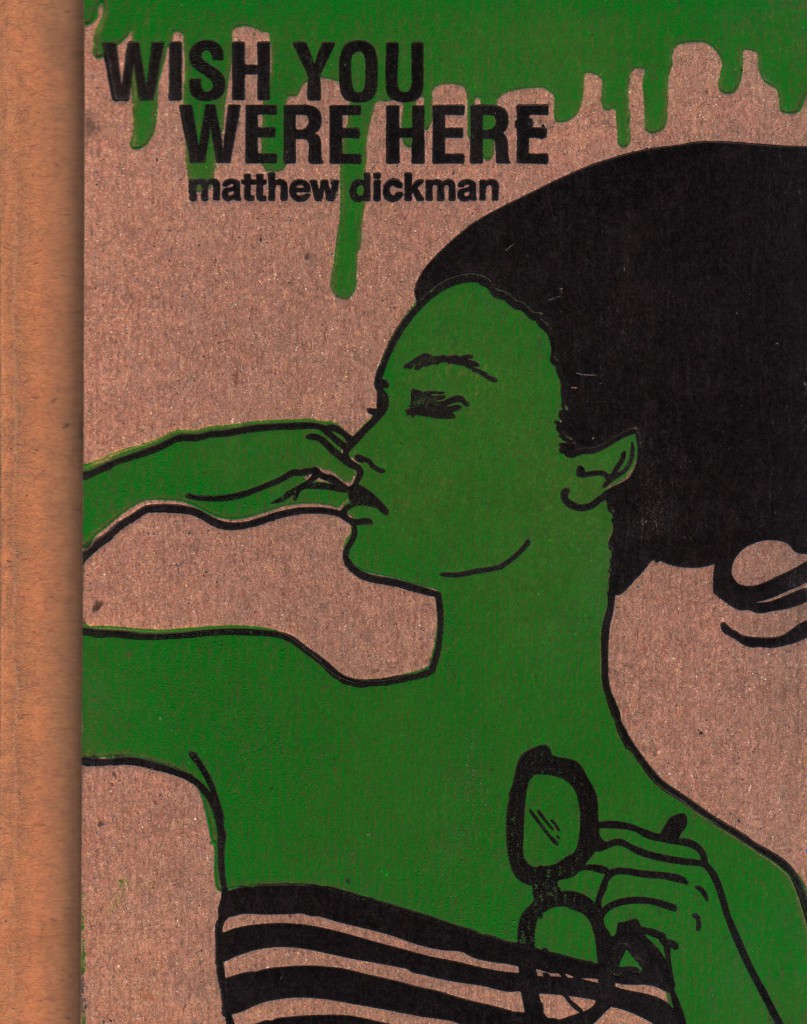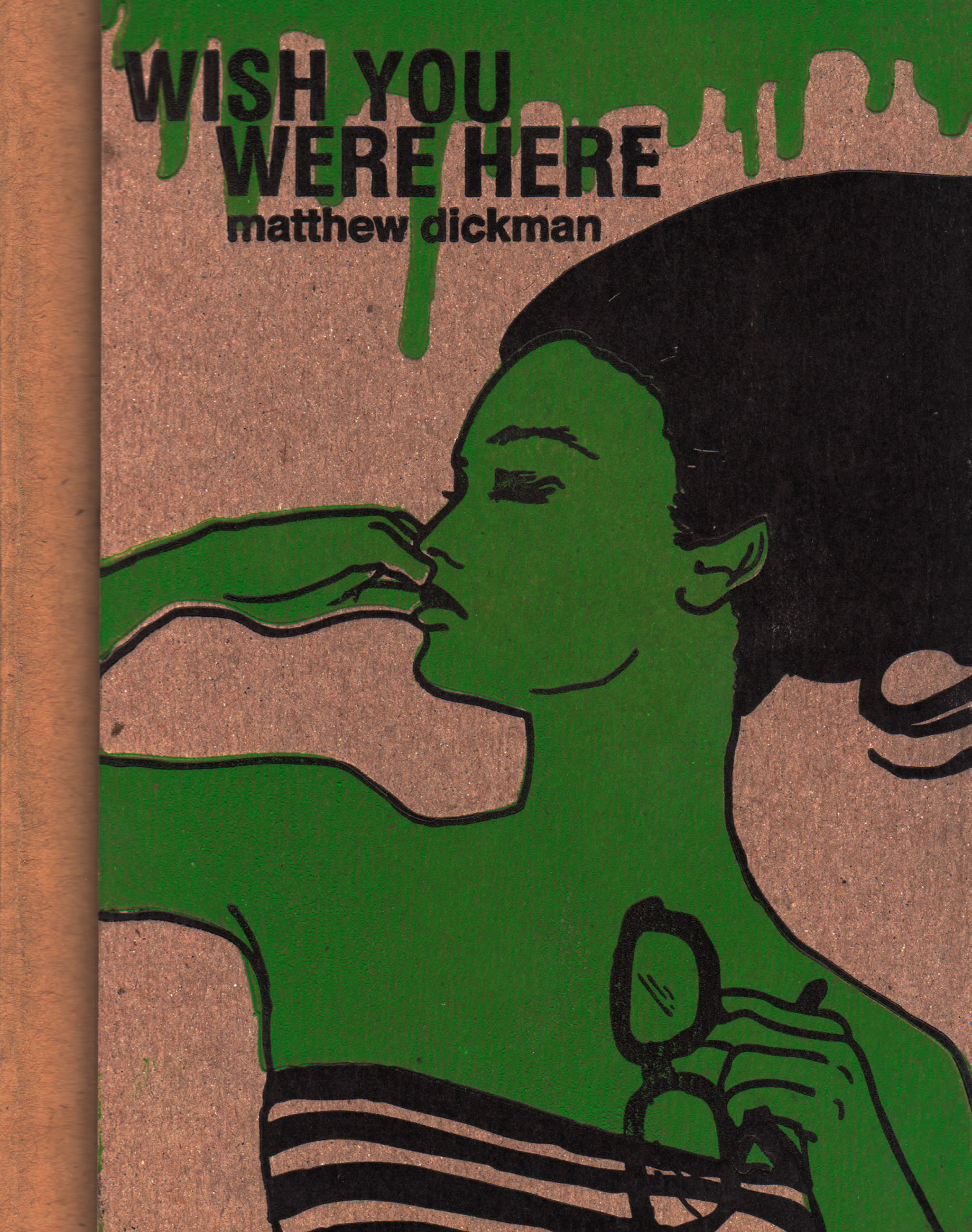
Much of this past week’s reading involved playing catch-up; some of it also involved reading books for freelance pieces, or for pieces that will run here in the next couple of weeks. (Pro tip: if you see anything by May-Lan Tan on the shelves of your local bookstore, purchase said book immediately.) And so this week’s selection is a mixed bag: four shorter books across styles: one memoir, one short fiction collection, one fragmented novel, and one book of poetry.
Matthew Dickman’s Mayakovsky’s Revolver was a book I was reading while Sandy raged outside my window and I drank whiskey and waited to see if the power would go off. It left a hell of an impression on me, and so delving into Wish You Were Here, a short collection released by Spork Press earlier this year was something I’d been looking forward to for a while. Here, Dickman delves into lost figures from his life; the dead loom large in these poems. Bodies and nudity–accidental and intentional–figure prominently in several of these as well, and that seems to fit; the comfort and discomfort one feels in one’s own skin, in one’s own life.
I’d been meaning to read Sarah Manguso’s The Guardians for a while. It’s a short book comprised of brief chapters, but given the subject matter, that makes sense. It’s Manguso’s account of her friendship with a talented musician who took his own life, and of her grief for him afterwards. And for all that the narrative jumps around in time, it’s very cohesive, always circling back to the tragedy at its core. It’s the kind of book that I find myself at a loss to write about at length: it’s something that I was glad to experience, and which I found to be a tremendously moving read, but there’s not much more I can say about it than that.
Simon Jacobs’s Saturn consists of a series of very short stories in which David Bowie is the central character. Surprisingly effective–though there are some touches that felt overly clever (the constant parentheticals when Iman is mentioned, for one), Jacobs ultimately uses Bowie as a good platform to examine aging, fame, and creativity. There’s also (as the cover above might suggest) a repeated riff on Goya’s Saturn Devouring His Children, which may not bode well for the fictionalized version of filmmaker Duncan Jones, who appears in several of these stories.
I bought Forrest Gander’s As a Friend when I was out west earlier this year: there was a glowing shelf talker for it at the Elliott Bay Book Company, and…who am I to argue? Much like Manguso’s book, it takes a fragmented approach to its central story: that of a charismatic young man working as a land surveyor and making art, whose orbit encompasses a friend, a wife, and the woman with whom he is having a long-term affair. From the outset, Gander plays with perspective, circling around his central character but keeping him at a distance. The accumulated tension builds and builds; this is not, in keeping with the fragmented way the narrative unfolds, this is not a story with an easy resolution. But anything less would have betrayed the complex framework Gander established.
Follow Vol. 1 Brooklyn on Twitter, Facebook, Google +, our Tumblr, and sign up for our mailing list.

